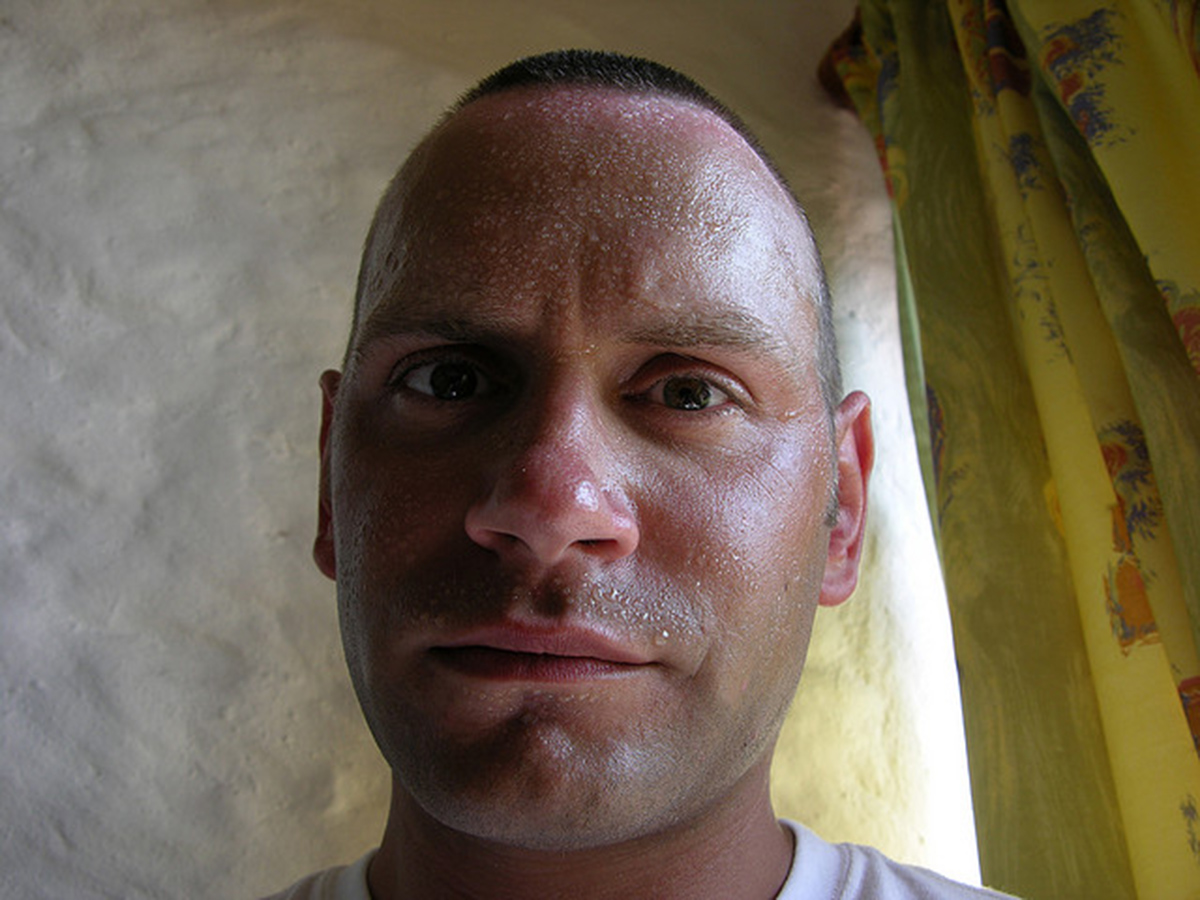Like flatulence, excessive belching, or constant hiccups, excessive sweating can be an embarrassing social problem that profoundly affects your life. Sweating more than the average person may be a medically harmless annoyance that has a profound impact on your life, but it can also in some cases be a sign of more serious underlying health problems. How do you tell if you are an excessive sweater, how do you know if your sweating is just annoying or actually dangerous, and — what can you do about excessive sweating?
What Exactly Is Excessive Sweating?
Hyperhidrosis, the medical term for excessive sweating, can be defined as perspiring more than you would reasonably expect to under the circumstances. That means sweating lots and lots when you only exert yourself physically a little bit, or when you're inactive and it's not even hot — even when you are not terribly stressed for some reason. You may have hyperhidrosis if no deodorant works for you and if your clothes tend to get wet from sweating in circumstances where you would not expect that.

Believe it or not, there are actually different types of excessive sweating:
- Primary focal hyperhidrosis affects between one and three percent of the poopulation, usually commences during puberty or even before, and affects specific body parts. Your armpits, hands, feet, thighs and face may be affected.
- Secondary general hyperhidrosis causes excessive sweating all over the body. It can strike any person of any age suddenly, and is caused by an underlying condition, also potentially making it more serious. Pregnant women and those going through the menopause can suffer from this type of extreme perspiration, but it can also be a sign of stroke, thyroid problems, diabetes, heart failure, and even cancer.
- Note: people suffering from anxiety can also experience excessive sweating, but this is not termed hyperhidrosis.
Should You See A Doctor About Your Stinky Problem?
- Have you started sweatly abnormally much since starting a medication? You are likely to be dealing with a side effect, and your doctor needs to know about it.
- Did your excessive sweating have a sudden onset, and is it combined with other symptoms such as increased thirst and urinary output, more hunger, constant fatigue and weakness, or sleeping difficulties? See your doctor, as you may be dealing with diabetes.
- If your sweating problem isn't limited to a localized body part such as the face, thighs, or armpits, if your sweating suddenly got worse without a reasonable explanation, or if you just started sweating excessively after previously experiencing normal sweat patterns, an underlying medical condition may be at play.
- Do you wake up in a cold sweat during the night? Are your sheets or your pillow drenched in the morning? Go see a doctor.
Solving Your Sweaty Problem: Treatment Options
Treating Primary Focal Hyperhidrosis

Treating Secondary Hyperhidrosis
Secondary hyperhidrosis is, by definition, caused by an underlying medical condition. It can often be treated, but the key to putting an end to your excessive sweating is finding out what caused it in the first place. If your secondary hyperhidrosis was caused by a medication, switching to another drug may be the solution. If you're sweating lots because you have diabetes, managing your diabetes will help. If you suffer from thyroid problems that were previously undiagnosed, getting treatment for those problems will address your perspiration.
- Photo courtesy of Kullez: www.flickr.com/photos/kullez/5598159209
- Photo courtesy of Zieak: www.flickr.com/photos/zieak/2874580849/sizes/z/

